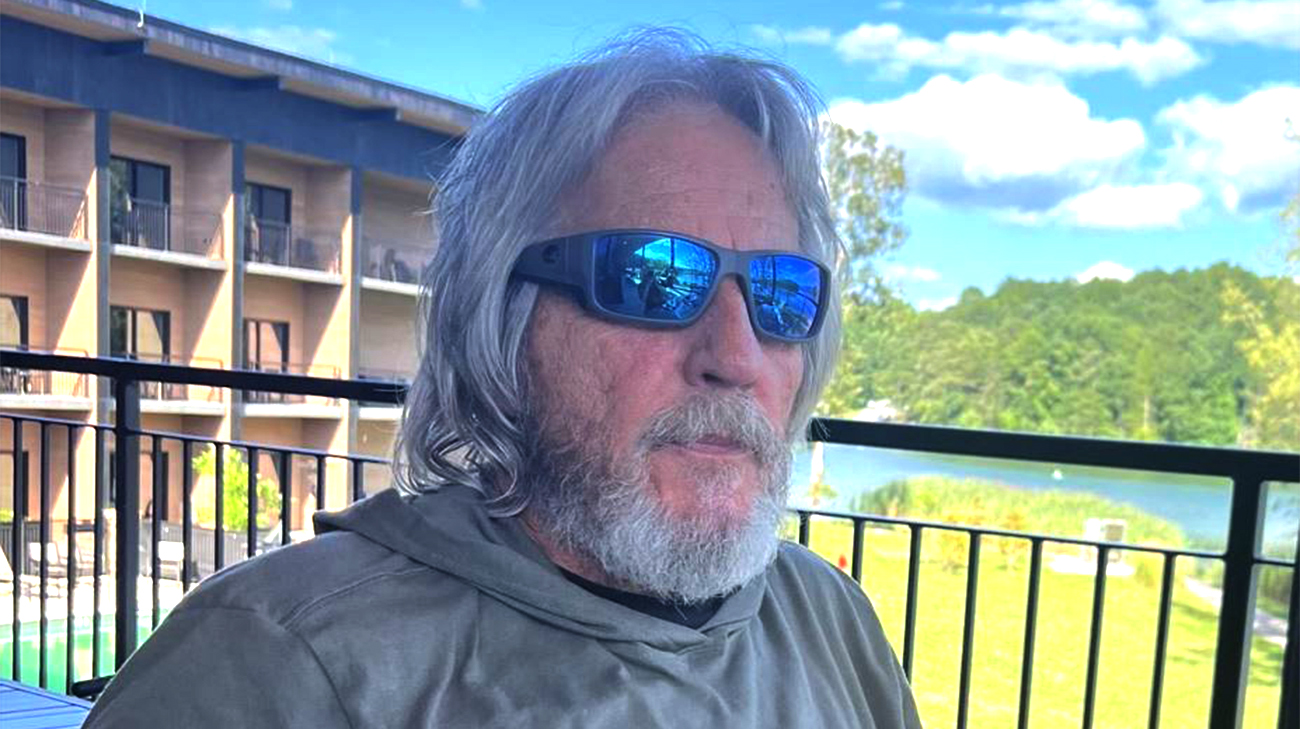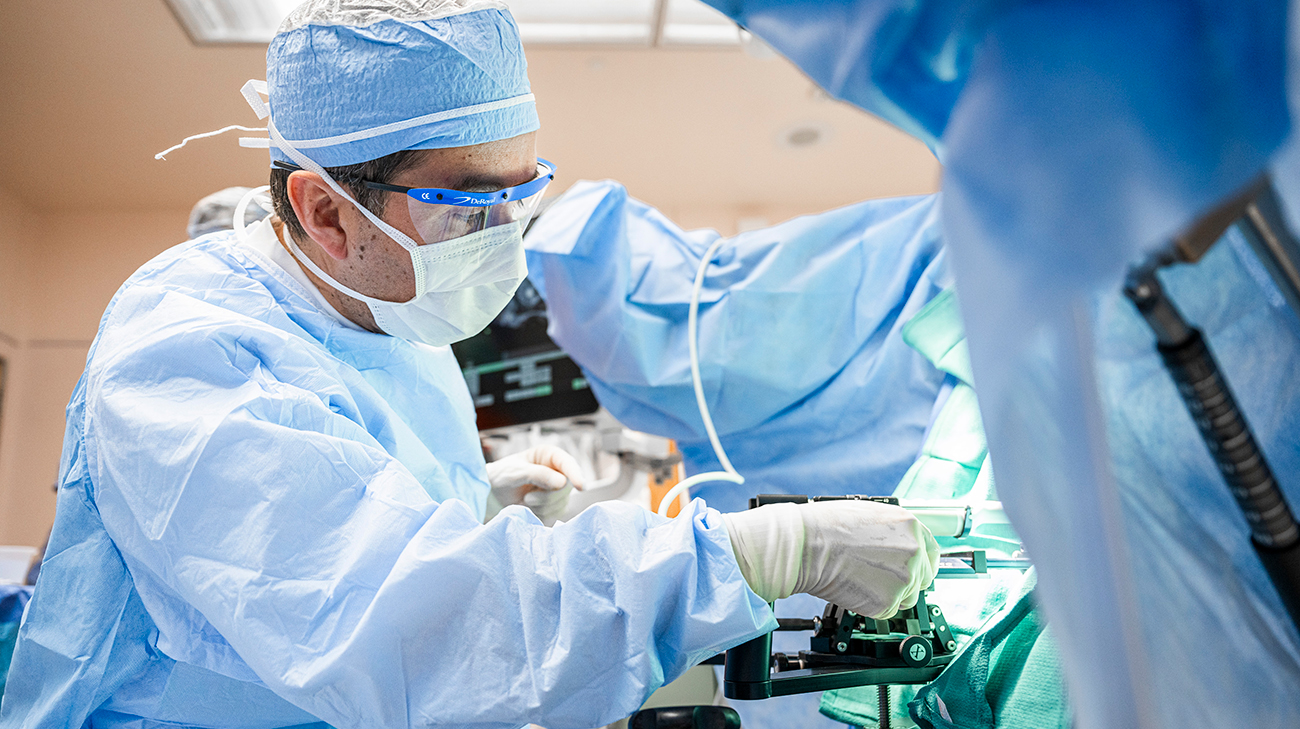
At 70 years old, Nick Shilatz shows no signs of slowing down. The technologist from Mount Pleasant, Pennsylvania, has been working in the steel and manufacturing industry for more than four decades. He’s also a pilot, logging over 7,000 flying hours since 1978. He continues to maintain his active lifestyle even after receiving a prostate cancer diagnosis in 2022.
After losing his father to prostate cancer, Nick was diligent about getting screened for the disease. In 2019, prostate-specific antigen (PSA) testing showed his PSA levels were starting to increase. Both normal and cancerous prostate tissue make PSA. However, prostate cancer tends to produce it in higher amounts.
“Knowing my family history, I suspected I had a good chance of getting prostate cancer when my PSA number was going up,” says Nick. “An MRI later showed a lesion on my prostate. When I found out, I thought about options and where I’d have the best chance of getting something done. I decided to go to Cleveland Clinic.”
After a biopsy confirmed he had stage 2 prostate cancer, Nick researched different treatment options. He became interested in exploring the use of irreversible electroporation (IRE), also known as NanoKnife®, to treat his prostate cancer. IRE is a type of focal therapy, which is a surgical approach that targets only the area of the prostate affected by cancer. IRE uses electric pulses to destroy the tumor while preserving the rest of the prostate. Nick discussed this treatment option with his care team, which included urologists Robert Abouassaly, MD, and Ruben Olivares, MD.
“The standard treatment options for patients with significant prostate cancer include radical prostatectomy, which involves removing the entire prostate gland, and radiation. These modalities are highly effective in terms of cancer control, but they may bring significant side effects,” says Dr. Olivares. “For patients with low-risk prostate cancer, we can offer a less invasive option using focal treatments like IRE or NanoKnife®.”
Dr. Olivares explains Nick was a good candidate for IRE because he had an intermediate prostate cancer that was localized. The minimally invasive procedure lessens the risks of complications such as urinary incontinence and erectile dysfunction, while also allowing for a quicker recovery.

Dr. Ruben Olivares performing a surgery using NanoKnife® technology. (Courtesy: Cleveland Clinic)
In October 2022, Nick became Cleveland Clinic’s first patient to undergo prostate cancer surgery using this newer modality. Cleveland Clinic is one of the first health care systems in Ohio to use this surgical technique to treat prostate cancer.
“I came in for the procedure on a Tuesday morning and left the hospital the same day,” says Nick. “I had no pain the day of surgery or anytime afterwards. I ended up returning to work after I got back home.”
Following the 45-minute procedure, Nick’s PSA levels stabilized, and his recent MRIs show no evidence of cancer. His care team will continue to monitor him closely for any signs of cancer recurrence.
“Nick must remain on active surveillance to monitor the oncological effectiveness in the treated area and also to diagnose any other cancer in the non-treated area of the prostate,” says Dr. Olivares. “The good news is we can repeat the IRE treatment if needed, or we can pivot to standard treatment options like radical prostatectomy or radiotherapy.”
Dr. Olivares and his team continue to gather data on the long-term safety and effectiveness of IRE and other focal therapy treatment methods for prostate cancer. So far, he says they’re optimistic because the functional and oncological outcomes are comparable to standard care options.
“We are heartened by the outcomes we’ve observed with IRE technology and other focal therapy treatment methods for prostate cancer. Going forward, we will continue our careful selection of patients and judicious use of the technology,” says Dr. Olivares.
More than a year after his surgery, Nick has not experienced any complications. He continues working as a consultant in the steel industry.
“When you’re diagnosed with cancer, you have to put your confidence in somebody. My confidence is 100% in Cleveland Clinic. From the doctors to the nurses, everybody I met was professional and concerned about how I was doing,” says Nick.
Related Institutes: Glickman Urological & Kidney Institute

